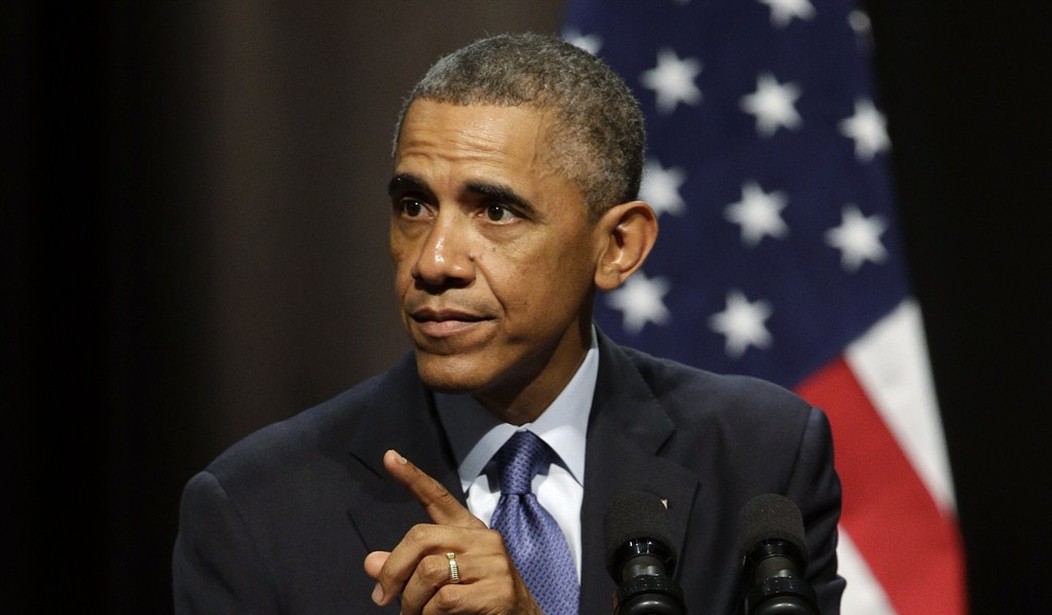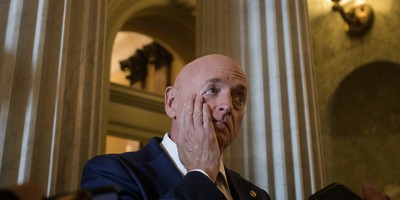WASHINGTON - President Obama is nearing the end of his sixth year in office, with his unpopular liberal agenda in ruins, his job approval polls at record lows, and his party facing sweeping losses in next month's elections.
Democratic candidates are distancing themselves from him or giving him the cold shoulder, while others refuse to admit they even voted for him.
The liberal news media, who embraced Obama as the political savior of the nation, are now beginning to voice their disappointment, along with some in his own Cabinet.
Former secretaries of Defense Robert Gates and Leon Panetta, and former Secretary of Defense Hillary Clinton, have all authored books criticizing some of his foreign and national security policies -- or made clear they disagreed with decisions he made, despite their objections.
Dana Milbank, a liberal pundit at the Washington Post who was one of president's biggest cheer leaders, now says "Obama is President Pariah in these final weeks of the 2014 midterms."
"Vulnerable Democratic candidates don't want to be seen with him. Three Democratic senators have run ads distancing themselves from him," Milbank wrote this week.
In Kentucky, for example, Democrat Alison Lundergan Grimes, who is trying to unseat Senate Republican Leader Mitch McConnell, refused to say whether or not she voted for the president.
In Georgia, Democratic Senate candidate Michelle Nunn also dodged the question of who she voted for in the last presidential election -- until her spokesman admitted this past week that, well, okay she did vote for Obama.
That kind of cold, arms length treatment by Democrats has forced him to sharply curtail his campaigning, visiting only heavily Democratic states he carried in his re-election campaign.
Recommended
Last Sunday, for instance, Obama spoke at a campaign rally in Prince George's County, Md., where he drew 90 percent of the vote, and where 90 percent of the audience were African-Americans.
He was speaking in behalf of Democratic gubernatorial candidate Anthony Brown who has a healthy lead over his GOP challenger. In his 11-minute speech, Brown said he was there to introduce Obama, but didn't say anything more about him until the very last minute of his remarks when he welcomed him as "a friend, a partner and a leader."
No effusive praise for his presidency. No warm embrace of his tarnished, rejected agenda. No ringing endorsement of his failed policies. Such is chilly political reception he is getting from his party's candidates.
That's why Obama's campaign schedule in the last days of this election are being restricted to Democratic urban areas like Bridgeport, Conn., Detroit, Philadelphia, and Milwaukee.
The word has gone out loud and clear from a number of Democratic campaigns -- from Louisiana to Colorado -- to stay away until the election is over. The White House got the message.
Meantime, a hornet's nest of troubles have burst across the political landscape Everything that could go wrong for Obama's presidency has gone wrong.
Throughout much of this year, the news media has been repeatedly telling us how unpopular the Republican Party is, even as Obama's polls continued to decline and the list of vulnerable Democrats grew longer.
This week, a Washington Post-ABC News poll "showed President Obama and the Democratic Party hitting new lows in voter approval," the survey reported.
And "forecasts of the battle for the Senate put the odds of Republicans gaining the six seats necessary to win the majority at between 60 and 96 percent," the Post said.
With Obama's agenda dead in the water on Capitol Hill and his paralyzed presidency stalled, a host of festering issues are fueling nationwide pessimism among voters who say our nation is headed in the wrong direction.
America's confidence in the economy continues to be weak, despite the president's insistence that it is stronger than before. Six years into an anemic, underperforming economy, news stories now refer to it as "the fragile U.S. recovery."
That weakness, the limited availability of full time jobs, flat incomes and the precipitous decline in the U.S. labor force remains among this nation's biggest problems.
While the Ebola scare seems to have ebbed, the Gallup Poll reports that confidence in the Obama government to handle Ebola nose dived this week, from 61 percent to 52 percent.
The voters are increasingly worried about the federal government's soaring national debt and the record budget deficits piling up under Obama's presidency. And a report from the administration last week intensified these fears.Obama's budget deficit in the last fiscal year was down somewhat, but it still came in at about half trillion dollars -- following a string of trillion dollar deficits that has pushed the total U.S. debt to nearly $18 trillion.
Treasury Secretary Jack Lew casually dismisses these numbers, saying "I don't think we have an emergency right now."
He'd better think that through again. But out of control federal spending has never been on Obama's list of issues that need fixing. He's into spending, and big spending at that.
So he continues to push for higher tax rates on the rich, which means reducing job-creating investment capital, and a higher minimum wage that will hurt small to mid-sized businesses and kill jobs.
Obama rose to power by selling voters on the idea that bigger government was the solution to all of our problems.In 1980, President Reagan was elected on the sound belief that government is the problem. It seems we are in the midst of learning that age-old lesson all over again.

























Join the conversation as a VIP Member